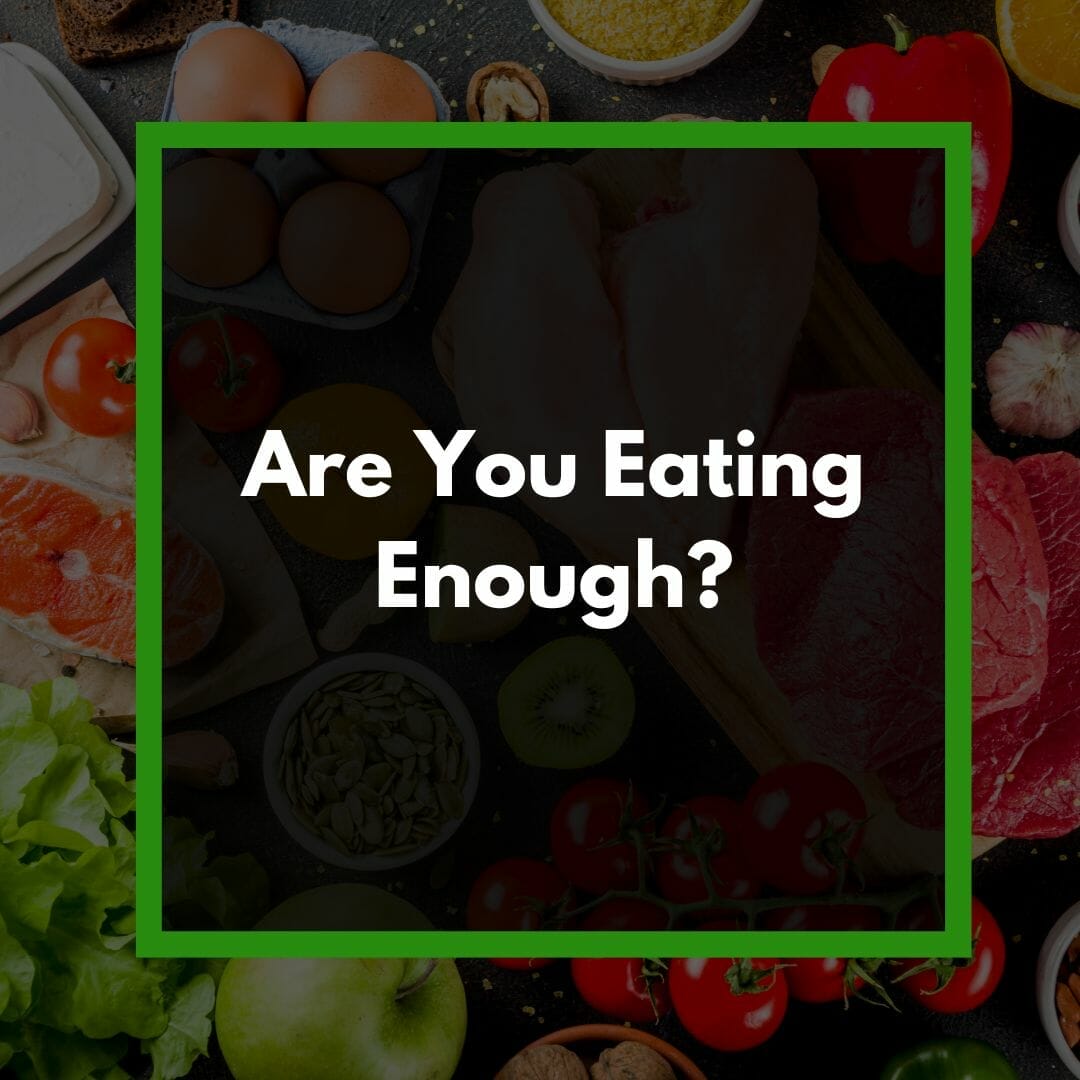Throughout your fitness journey, people will preach “Add exercise and develop a proper diet”. That’s what gets results. And this is true. However, the directions are unclear to what that means, especially when it comes to diet. Do I limit the types of things I consume but eat as much as I want? Does it even matter what I eat if I just eat tiny portions? These are valid questions that come up when looking to take your health and fitness to the next level. Today we’ll be taking a look at a few key reasons why we should not only be focusing on what we eat, but also how much we eat. Because yes, it definitely matters, and sometimes the problem is actually not eating enough.
Eating enough food ensures that your body has the energy it needs to power through workouts, maintain bodily functions, and support recovery. Without sufficient calories, your body might start to use muscle tissue as an energy source, hindering your progress and possibly leading to fatigue, weakness, and even injury. Speaking of muscle, the amount of calories you consume can play a big role in muscle development during your fitness journey, but is sometimes overlooked.
We’ve talked about the role of protein in your health and fitness journey. Protein is a key nutrient that is essential for muscle growth and repair. Consuming enough protein helps your body rebuild and strengthen muscles after intense workouts, aiding in muscle recovery and development. By consuming more calories from foods such as lean meats, dairy, legumes, and nuts, you ensure your body receives enough protein and can properly function to build more muscle. Also, we know that muscle weighs more than fat and adding muscle is a great way to help increase your metabolism. Eating more in general can increase your metabolism as well.
Eating enough food regularly can help keep your metabolism active. When you consistently consume an adequate amount of calories, your body recognizes that it doesn’t need to conserve energy and is more likely to burn calories efficiently. This can contribute to maintaining a healthy weight and supporting your fitness goals. Of course this assumes that you’re eating a balanced diet. A well-balanced diet provides your body with the necessary vitamins, minerals, and micronutrients that are crucial for overall health. Fruits, vegetables, whole grains, and healthy fats supply your body with essential nutrients that support immune function, bone health, and cardiovascular wellness.
Restrictive diets or severely limited calorie intake can take a toll on your mental and emotional health. Adequate nourishment helps stabilize blood sugar levels, promoting better mood and reducing irritability or mood swings often associated with extreme dietary restrictions. And it leads to a more long term healthy lifestyle. While quick-fix diets may yield short-term results, they are often difficult to sustain over time. Eating enough food that suits your activity level and nutritional needs provides a more sustainable approach to health and fitness, allowing you to maintain progress and continue enjoying your fitness journey.
So, in the pursuit of better health and fitness, it’s vital to remember that food is your body’s fuel. Consuming enough calories, along with a well-balanced diet, ensures that you have the energy, nutrients, and stamina necessary to achieve your fitness goals. Strive for a balanced approach that respects your body’s needs, supports muscle growth and repair, and enhances your overall physical and mental wellbeing. Remember, eating enough isn’t just about quantity; it’s about nourishing your body for a healthier and more fulfilling fitness journey.
If you enjoyed this, check out our previous blog post below ” The Power of Protein” and more on TheVFit blog!

